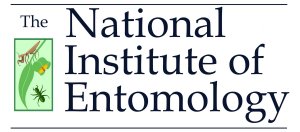By Leslie Mertz, Ph.D.
Western cherry fruit flies are a big problem for fruit growers. Female flies poke their sharp, egg-laying structures (the ovipositors) into sweet cherries and lay eggs in the fruit, after which the eggs hatch into maggots that begin feasting on the cherry’s pulp. A large fruit-fly infestation can turn a once-profitable crop into a valueless maggot nursery.
One solution may be a slippery organic coating that prevents the female western cherry fruit fly (Rhagoletis indifferens) from jabbing the fruit with her ovipositor, according to a new research article published in May in Environmental Entomology. It works like this: Once the female lands on the fruit, she needs to lodge firmly with her front two legs and then tip her abdomen upward so she can drive the ovipositor straight down into the fruit, but the coating causes her hind legs to slide off, explains horticultural scientist Clive Kaiser, Ph.D., associate professor of agricultural sciences at Lincoln University in New Zealand and current courtesy faculty of agriculture at Oregon State University. He co-authored the article with research entomologist Wee Yee, Ph.D., of the U.S. Department of Agriculture (USDA) Yakima Agricultural Research Laboratory.
Kaiser had already been developing coatings, collectively called HydroShield, to thwart a smaller species of fruit fly—spotted-wing drosophila (Drosophila suzukii)—and provide various other crop-related benefits, when Yee asked him if he could make a version to fight the devastating western cherry fruit fly. Kaiser provided an initial coating to try, and Yee noticed that the females’ back legs skated a bit on the coated sweet cherry surface, which cut their ability to lay eggs by about half. Kaiser got to work creating a coating that was smoother and more slippery, and, after several iterations, “we had a really good version that reduced egg-laying quite significantly,” he says.
That version, which is a food-grade (i.e., safe for human consumption) coating primarily made of complex carbohydrates and fatty acids, reduced fly visits and egg-laying by up to 72 percent in the lab, Kaiser says. The researchers also tested it over two years at the USDA cherry orchards in Moxee, Washington, applying the coating three times during the growing season at a concentration of 1 percent. In the first year, they applied the coating with a hand-pump backpack sprayer but found they got more complete coverage of the fruit, as well as a significant reduction in egg-laying, when they switched to a motorized, mist-blower backpack sprayer the second year.
With this success under their belts, the researchers mixed the coating with an organic, botanically derived insecticide called PyGanic, evaluated the combination formulation in the laboratory this winter, and “found 100 percent control of egg-laying and 50 percent mortality of the adults,” Kaiser says, adding that they are planning to present these new results at the 2022 Joint Annual Meeting of the Entomological Societies of America, Canada, and British Columbia in November.
fly oviposition figurefield spray trial figure
In the meantime, they are beginning tests to verify what they believe is an optimal solution concentration and spray schedule for the HydroShield/PyGanic combination: 0.25 percent HydroShield solution applied in two sprays. Kaiser also hopes to run a trial of the HydroShield coating blended with a different organic pesticide, known as spinosad. “PyGanic is a pyrethroid, which breaks down almost instantaneously once it hits its target, so there’s very little residual in the field. I think spinosad has even more promise because it sits on the fruit longer,” he says. The longer residual effect means fruit flies will continue to pick up spinosad from the cherry surface, making them more vulnerable to the pesticide’s killing effects.
At present, HydroShield is not yet on the market, Kaiser says, but some companies have expressed interest in manufacturing it, and he expects interest to mount with continued positive research results, particularly in the combination form with organic pesticides. He adds, “It’s very exciting, and if we can get yet better control going forward, it will be even better for cherry fruit farmers.”
Leslie Mertz, Ph.D., writes about science and runs an educational insect-identification website
Source: Entomology today, 27/06/22


 O-Sense
O-Sense